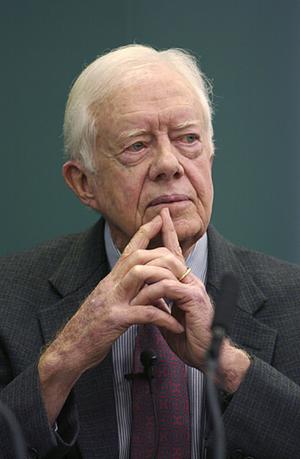 Gaza: Bombs, Missiles, Tanks And Bulldozers
Gaza: Bombs, Missiles, Tanks And BulldozersTranscript of former US President Jimmy Carter's Address to the United Nations Relief Works Agency's Human Rights Graduation in Gaza, June 16, 2009.
By Jimmy Carter
June 19, 2009 "Information Clearing House" -- June 16, 2009 -- Director of UNRWA operations John Ging, thank you for inviting me to Gaza. Distinguished guests, children of Gaza, I am grateful for your warm reception.
I first visited Gaza 36 years ago and returned during the 1980s and later for the very successful Palestinian elections. Although under occupation, this community was relatively peaceful and prosperous. Now, the aftermath of bombs, missiles, tanks, bulldozers and the continuing economic siege have brought death, destruction, pain, and suffering to the people here. Tragically, the international community largely ignores the cries for help, while the citizens of Gaza are being treated more like animals than human beings. More >>>




